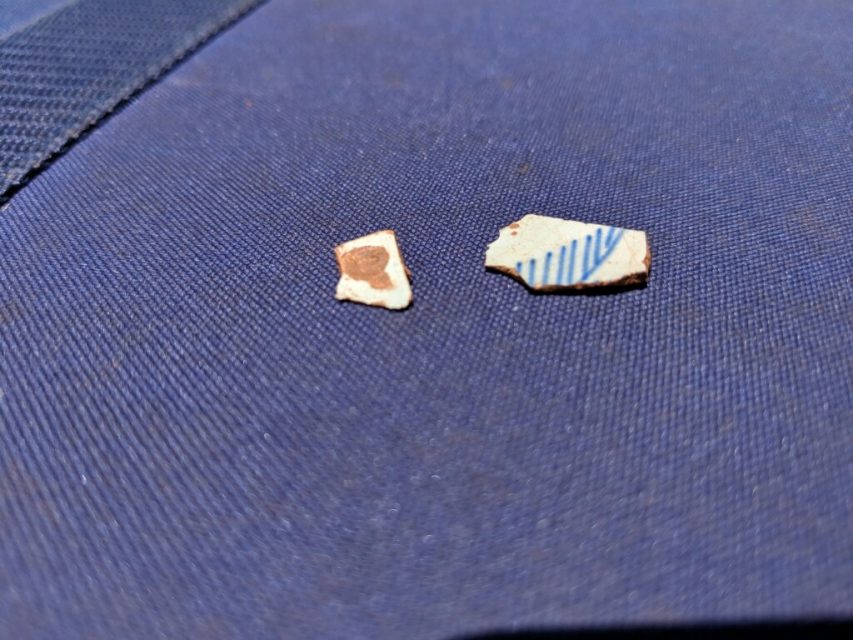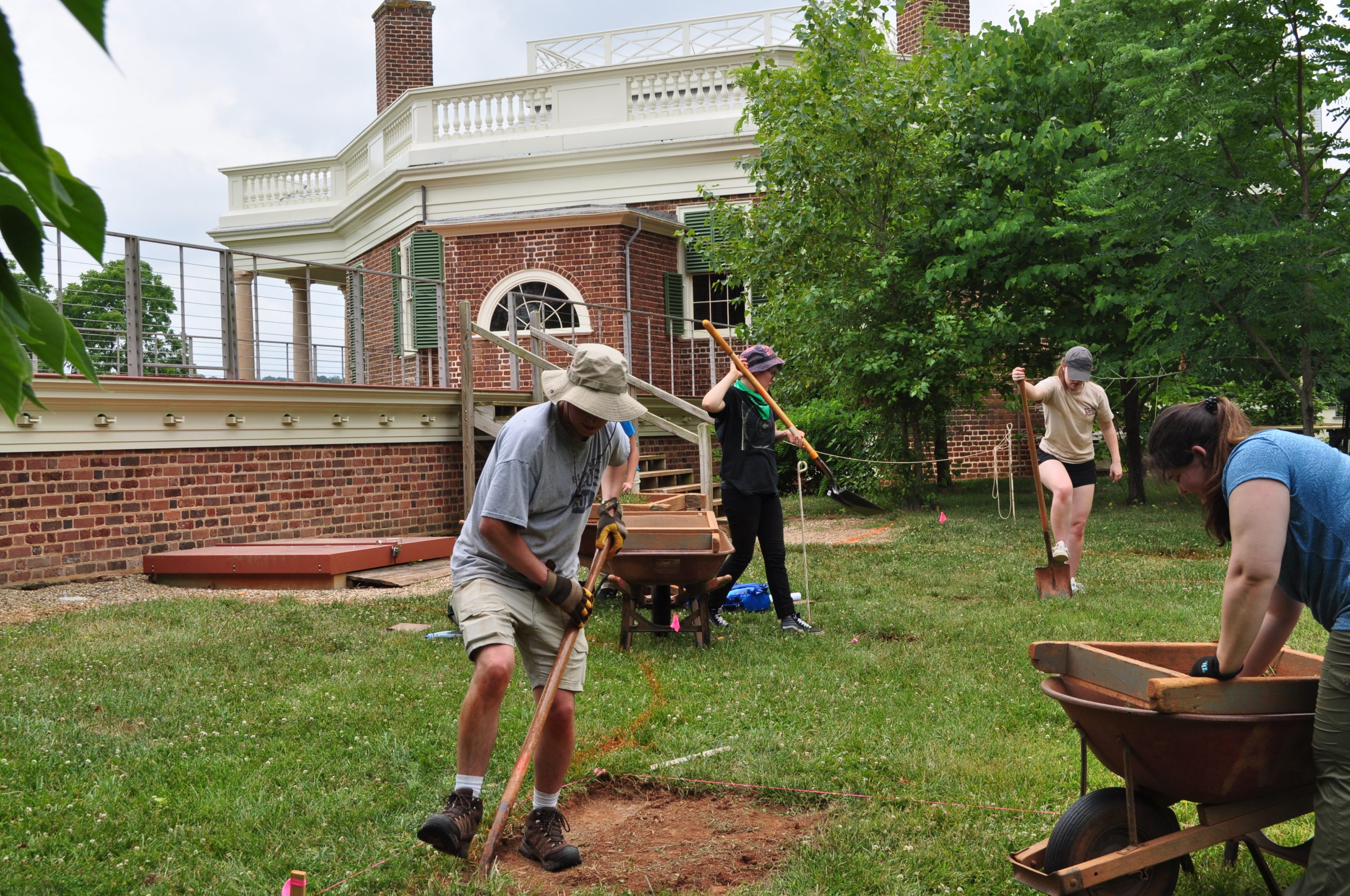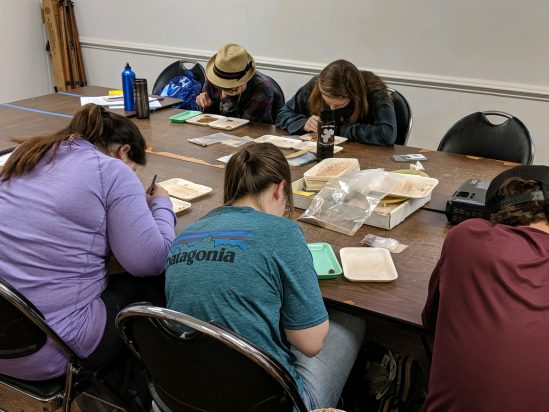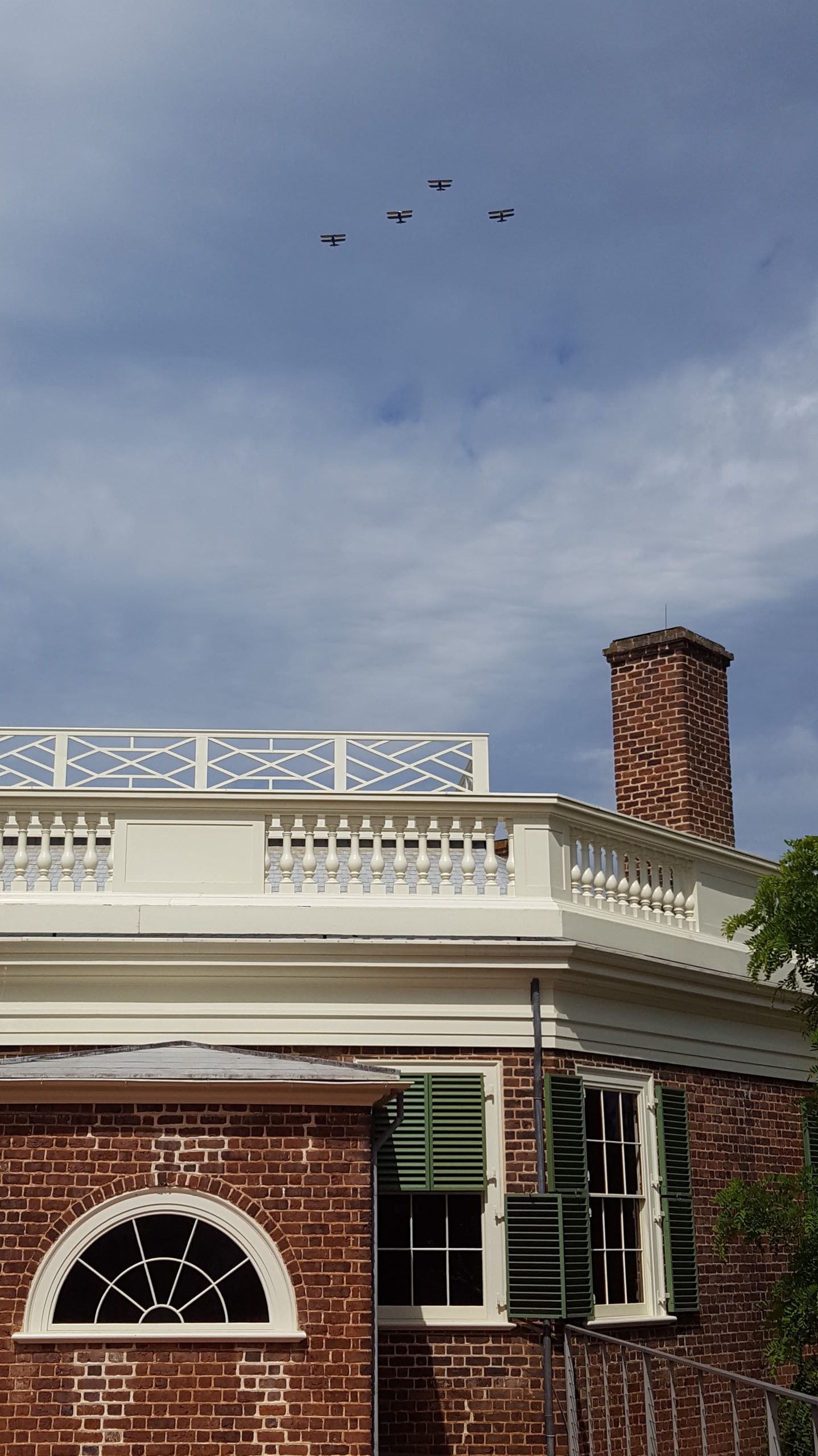Archaeology Blog
First Week of Field School 2019
The department kicked off its 30th annual archaeological field school this Monday and welcomed seven undergraduates as students. For the next six weeks they’ll be writing our blog posts and recounting their excavations, finds, and field trips as the class progresses.
The first lecture gave us the brief history at Poplar Forest and what to expect while working here. We are just trying to peel back the dirt to find out the daily lives of the people who lived here using the material culture left behind. We also learned how this place changed ownership many times and we know the number of slaves changed greatly due to Thomas Jefferson’s debt. We are trying to find out more about their lives along with the buildings they lived in.
My first two days at Poplar Forest plantation was a change of pace from what I’m used to back home. I’m really enjoying the work of an archeologist. The first day I did my first shovel test pit and it was pretty cool to excavate it and find artifacts in that test pit, it was really rewarding. I was working in shovel test pit 3365. We didn’t find anything from layer A but layer B we recovered two ceramic pieces (see photo above), three charcoal flecks, and a small piece of glass. At layer C we found a feature. It was indicated by a different darker soil in comparison the normal red clay. I honestly think the best part of the first two days was finding the ceramic pieces I think that’s cooler than the glass or charcoal or the feature.
-Corey
After each team finished excavating their initial 2×2’ test units, they moved to a new location on the property. The Carriage Turnaround in front of the main house is currently being restored to its former glory. Field school students helped prepare an area for the next phase of the restoration process by removing small section of topsoil and assessing the soil beneath.
Rain or shine, the field school must go on! Here at Poplar Forest, that’s exactly how we do things. If the excavations can’t continue due to rain, the work moves inside. One of the many things that archaeologists-in-training do is sort through bags of processed soil samples, looking for artifacts that are too small to be recovered in the field.
On June 6, field school students had the added bonus of WWII-era planes flying overhead on their way to the nearby D-Day Memorial in Bedford County. Although rain is in sight for the next few days, the field school will continue with our exciting projects.
-Ashley



